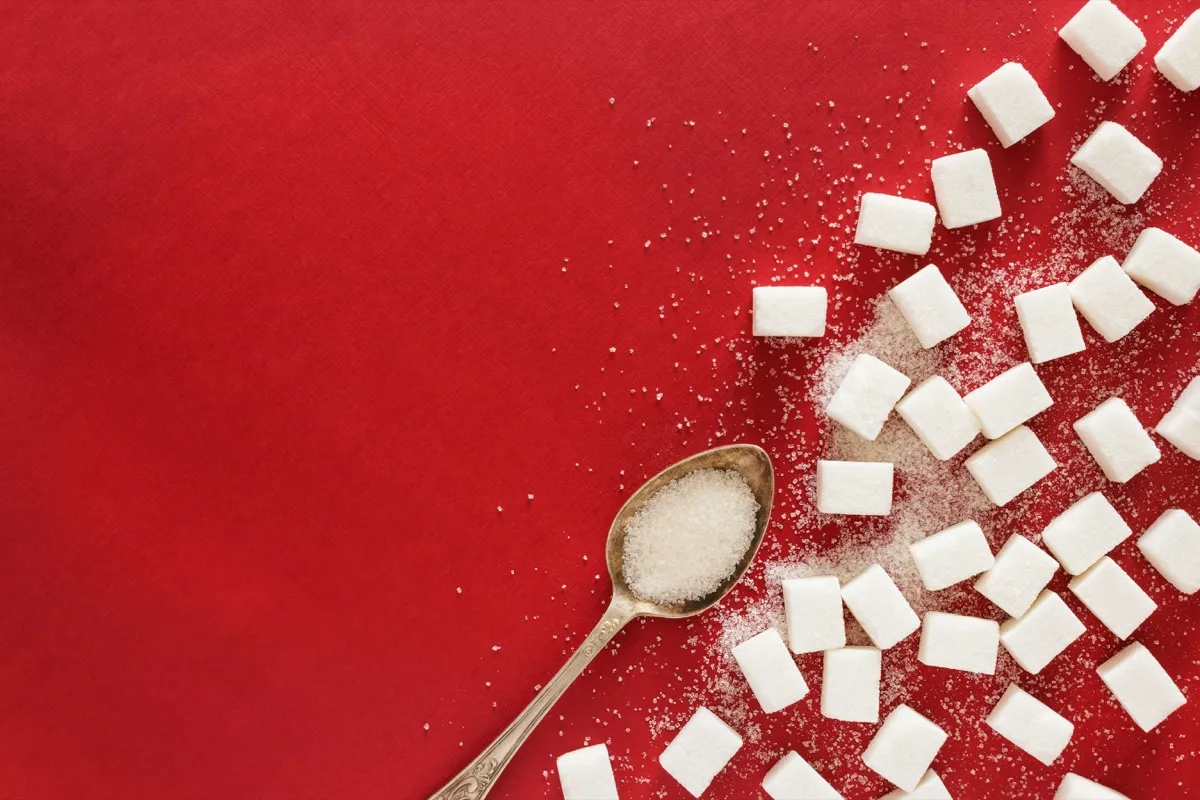7 Red Flags You’re Eating Too Much Sugar

If you love sugar, you’re not alone. Our brains are wired to find sweetness pleasurable. If you’re feeling tired, sugar provides a quick burst of energy. But as we know, too much sugar has plenty of drawbacks.
According to the American Heart Association adults and young adults in the U.S. consume on average about 17 teaspoons of added sugar every day. That’s more than 2 to 3 times the recommended daily allowance. According to the AHA, men should consume no more than 9 teaspoons (36 grams or 150 calories) of added sugar per day, and women should consume no more than 6 teaspoons (25 grams or 100 calories) per day.
The main sources of added sugar are soft drinks, fruit juices, desserts such as cakes and cookies, ice cream, donuts and pastries, to name a few. But sometimes, even healthy-seeming foods can be packed with added sugar, which is why it’s so important to read those food labels.
According to Amy Goodson MS, RD, LD, CSSD, a registered dietitian and consultant in the Dallas-Fort Worth area with an emphasis in overall health, wellness and sports nutrition there are several red flags that you may be consuming too much sugar. “If you’re noticing these red flags, try cutting back on added sugars and focusing on balanced meals with fiber, protein, and healthy fats,” she says. “Stabilizing your blood sugar can help boost energy, improve mood, and support overall health.”
Read on to see if you’re experiencing any of these red flags – and then decide if you need to scale back the sweetness in your diet.
Mood Swings

If your mood is up and down, it could have something to do with the amount of sugar you’re consuming. Eating too much sugar can cause blood sugar levels to spike and crash, leading to sudden shifts in mood. “These fluctuations may leave you feeling happy one moment and irritable or anxious the next,” says Goodson.
Weight Gain

Unwanted pounds could be the product of too much added sugar. “Excess sugar, especially from sweetened beverages and snacks, adds empty calories that can easily contribute to weight gain when consumed cons
Breakouts

If your skin is breaking out, your sweet treats could be to blame. High sugar intake can increase inflammation and trigger hormonal changes that contribute to acne. “Foods with a high glycemic index may also stimulate oil production, which could lead to breakouts,” says Goodson.
Lack of Energy

Feeling sluggish could be a byproduct of a sugar-laden diet. While sugar can give a quick burst of energy, it’s often followed by a crash that leaves you feeling more tired. Goodson says these highs and lows can zap your overall energy levels throughout the day.
Insomnia

If you’re having trouble sleeping, take a look at your nighttime routine – and the desserts you’re having in the evening, too. “Consuming sugary foods, especially at night, can interfere with melatonin production and disrupt your sleep cycle,” says Goodson. Blood sugar fluctuations may also cause nighttime awakenings or restless sleep.
Increased Appetite

Feeling extra hungry? It could be the added sugar in your diet. “Sugar can interfere with the hormones that regulate hunger, like leptin and ghrelin, making it harder to feel full,” says Goodson. “This can lead to constant cravings and overeating.” Plus, when you come off a sugar crash, you typically feel hungrier than you were before leading to eating more.
Irritability

Feeling cranky? Those cookies and cakes could be the culprit. But the good news is that bad mood could potentially be turned around by cutting back on sugar. When your blood sugar crashes after a sugary meal or snack, it can leave you feeling cranky or short-tempered. “Stable blood sugar helps support better emotional regulation and focus,” says Goodson.